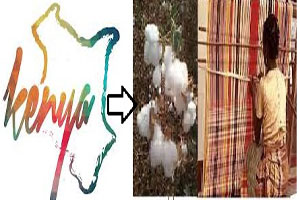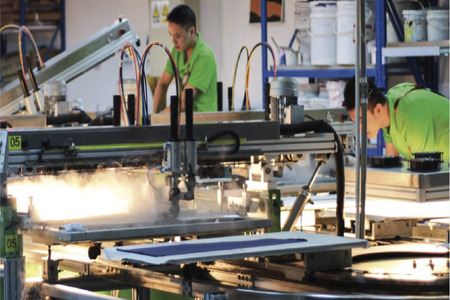
Kenyan govt to revive textile industry with plan to boost cotton farmers
YarnsandFibers News Bureau 2015-08-04 11:00:00 – NairobiFollowing the recent US government extension of the Africa Growth and Opportunity Act (Agoa) for 10 years, under which Kenyan textiles trade in the American market. The Kenyan government has taken the first steps to revive the textile industry with plans to give cotton farmers 750 tonnes of certified seed this year.
In the short term, the government, through the Agriculture, Fisheries and Food Authority (Affa), will provide 50 tonnes of seed for free to cotton growers by end of August, with the condition that farmers commit to provide land for cotton farming expansion.
According to the Affa, the growing global demand for bio-degradable products, and the opportunities accompanying the extension of the AGOA, is key attributes signaling a new lease of life for the textile industry.
Provision of the seeds is part of a pilot initiative the Affa is spearheading, together with the National Irrigation Board (NIB), and Kenya Agricultural and Livestock Research Organisation (Kalro) through the Kenya Seed Company (KSC) to expand cotton acreage and eventually rejuvenate a stagnated textile sub-sector.
Currently, cotton farming in the country is done on 35,927 hectares which produce an average of 24,975 tonnes of seed annually, against the estimated potential of 300,000 hectares suitable for rain-fed crop production.
Affa acting director general Alfred Busolo at a fibre crops forum in Nairobi said that they are providing the seeds because of a rising demand for bio-degradable products in the world and the available opportunities arising from the recent Agoa extension. They will start off with 50 tonnes of certified seed as part of a pilot scheme to benefit 5,000 farmers in cotton-growing areas.
The government further estimates that 35,000 hectares of cotton produced in the country are grown under irrigation. Busolo said that adoption of certified seeds has numerous advantages, including increase of yield by over 50 per cent.
The country produces a paltry 25,000 bales of cotton against the local demand of 200,000 bales, leaving the country to import 175,000 bales. But with the provision of seeds to farmers who commit to provide land for the crop, they hope to produce 30,000 bales this year, and look to half the deficit in the next five years.
Kenya has partially benefited from the US textile market through a window provided in the pact, in which enterprises producing for exports are allowed to import raw materials.
Since import duties have to be paid by enterprises producing for export within the Export Processing Zones (EPZ), only wages paid to Kenyan operators and workers contribute to Kenya’s value addition in the fibre conversion production system. This denies local cotton producers and processors the full benefits under the Agoa arrangement.
The export opportunities provided by the Agoa scheme for the last 15 years have not been fully exploited because of inadequate raw materials.
Market Intelligence
Ask for free sample Report

experience
Customer Base
dedicated team
Countries Served Worldwide









